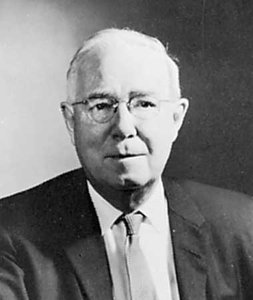'I was glad' is an English text drawn from selected verses of Psalm 122. It has been used at Westminster Abbey in the coronation ceremonies of British monarchs since those of King Charles I in 1626.

Chichester Psalms is an extended choral composition in three movements by Leonard Bernstein for boy treble or countertenor, choir and orchestra. The text was arranged by the composer from the Book of Psalms in the original Hebrew. Part 1 uses Psalms 100 and 108, Part 2 uses 2 and 23, and Part 3 uses 131 and 133. Bernstein scored the work for a reduced orchestra, but also made a version for an even smaller ensemble of organ, one harp, and percussion.

Franciscus Florentinus Peeters,Baron Peeters was a Belgian composer, organist and academic teacher. He was director of the Conservatorium in Antwerp, Belgium, and organist at Mechelen Cathedral from 1923 to his death in 1986.

Jules Jozef Paul Maria Van Nuffel was a Belgian priest, composer, choirmaster, music pedagogue, musicologist and a renowned expert on religious music.

Leo Salkeld Sowerby was an American composer and church musician. He won the Pulitzer Prize for music in 1946 and was often called the “Dean of American church music” in the early to mid 20th century.

Psalm 137 is the 137th psalm of the Book of Psalms, beginning in English in the King James Version: "By the rivers of Babylon, there we sat down". The Book of Psalms is part of the third section of the Hebrew Bible, and a book of the Christian Old Testament. In the slightly different numbering system used in the Greek Septuagint and Latin Vulgate translations of the Bible, this psalm is Psalm 136. In Latin, it is known by the incipit, "Super flumina Babylonis". The psalm is a communal lament about remembering Zion, and yearning for Jerusalem while dwelling in exile during the Babylonian captivity.

John Rutter's Gloria is a musical setting of parts of the Latin Gloria. He composed it in 1974 on a commission from Mel Olson, and conducted the premiere in Omaha, Nebraska. He structured the text in three movements and scored it for choir, brass, percussion and organ, with an alternative version for choir and orchestra. It was published in 1976 by Oxford University Press.

Psalm 126 is the 126th psalm of the Book of Psalms, beginning in English in the King James Version: "When the Lord turned again the captivity of Zion, we were like them that dream". In Latin, it is known as In convertendo Dominus. It is one of the fifteen Songs of Ascent in the Book of Psalms whose opening words in Hebrew are "Shir HaMaalot". In the slightly different numbering system used in the Greek Septuagint version of the Bible and in the Latin Vulgate, this psalm is Psalm 125.

Psalm 93 is the 93rd psalm of the Book of Psalms, beginning in English in the King James Version: "The LORD reigneth, he is clothed with majesty". The Latin wording is Dominus regnavit, decorem indutus est. The Book of Psalms is part of the Hebrew Bible and the Christian Old Testament. In the slightly different numbering system of the Greek Septuagint and Latin Vulgate versions of the Bible, this psalm is Psalm 92. It is the first of a series of psalms which are called royal psalms as they praise God as King.

Psalm 24 is the 24th psalm of the Book of Psalms, beginning in English in the King James Version: "The earth is the LORD's, and the fulness thereof". In the slightly different numbering system used in the Greek Septuagint version of the Bible and the Latin Vulgate, this psalm is Psalm 23. In Latin, it is known as "Domini est terra et plenitudo eius orbis terrarum". The psalm is marked as a Psalm of David.

Psalm 122 is the 122nd psalm of the Book of Psalms, beginning in English in the King James Version: "I was glad" and in Latin entitled Laetatus sum. It is attributed to King David and one of the fifteen psalms described as A song of ascents. Its title, I was glad, is reflected in a number of choral introits by various composers.

Psalm 121 is the 121st psalm of the Book of Psalms, beginning in English in the King James Version: "I will lift up mine eyes unto the hills, from whence cometh my help”. In the slightly different numbering system used in the Greek Septuagint and Latin Vulgate translations of the Bible, this psalm is Psalm 120. In Latin, it is known as Levavi oculos meos in montes.

Psalm 47 is the 47th psalm of the Book of Psalms, beginning in English in the King James Version: "O clap your hands". The Book of Psalms is the third section of the Hebrew Bible, and a book of the Christian Old Testament. In the slightly different numbering system used in the Greek Septuagint and Latin Vulgate translations of the Bible, this psalm is Psalm 46. In Latin, it is known as "Omnes gentes plaudite manibus". The psalm is a hymn psalm. It is one of twelve psalms attributed to the sons of Korah, and one of fifty-five psalms addressed to the "Chief Musician" or "Conductor".

Ignace Michiels is a Belgian organist, choral conductor and organ teacher. He is internationally known as a concert organist.
In convertendo Dominus, Op. 32, is the musical setting of In convertendo Dominus, written by Jules Van Nuffel in 1926 for a mixed choir and organ.

The Reger-Chor is a German-Belgian choir. It was founded in Wiesbaden in 1985 and has been conducted by Gabriel Dessauer in Wiesbaden. Since 2001 it has grown to Regerchor-International in a collaboration with the organist Ignace Michiels of the St. Salvator's Cathedral of Bruges. The choir performs an annual concert both in Germany and Belgium of mostly sacred choral music for choir and organ. Concerts have taken place regularly in St. Bonifatius, Wiesbaden, and in the cathedral of Bruges in its series "Kathedraalconcerten". The choir performed additional concerts at other churches of the two countries and in the Concertgebouw of Bruges.
Peter Rasmussen Hallock was an American organist, choirmaster, liturgist, countertenor, and composer and arranger of church music. Though he occasionally gave concerts, lectures, and seminars around the United States, his career was centered in Seattle, Washington. From 1951 to 1991 he served as organist and choirmaster at St. Mark's Cathedral, Seattle, during which he was conferred the title of Canon Precentor, the first layperson in the Episcopal Church to be so honored. Later, he served as organist at St. Clements (Seattle) until 2013. He also founded the Compline Choir from its predecessor chant study group in 1956; he led the choir until 2009. He never married.

In convertendo Dominus, sometimes referred to as In convertendo, is the Latin version of Psalm 126. It has been set in full for a cappella choir by, amongst others, George de La Hèle (1547-1586) and Jean-Noël Marchand (1666-1710), by Dmitri Bortnyansky (1777), Marc-Antoine Charpentier H.169 (1670 ?), Michel-Richard Delalande S.25 (1684), Charles-Hubert Gervais (1723) and Jean-Philippe Rameau (In convertendo Dominus, c. 1710), by 16th century Scottish priest Patrick Douglas, as a motet for choir and orchestra and by Jules Van Nuffel for mixed choir and organ as his Op. 32 (1926); it has also been set in part for a cappella choir by Giovanni Bernardino Nanino..

Super flumina Babylonis, Op. 25, is a musical setting of Psalm 137 in Latin by Jules Van Nuffel, composed in 1916 for mixed choir and organ.

Psalm 150 is a psalm setting by César Franck. He wrote the composition, setting Psalm 150 for four-part choir, orchestra and organ, in 1883. It was published in 1896 by Breitkopf & Härtel. Carus-Verlag published an arrangement for choir, strings and organ. The incipit in French is "Halleluiah! Louez le Dieu, caché dans ses saints tabernacles".
















